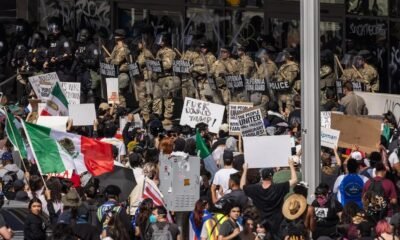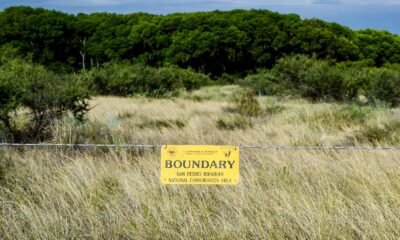arizona
Arizona High Court Declares Open Primaries Constitutional, Validates Ballot Inclusion

The Arizona Supreme Court confirmed on Thursday that Proposition 140, which aims to eliminate partisan primaries, will be included on the November ballot. However, a subsequent legal challenge regarding the validity of the initiative’s signatures remains unresolved, delaying final confirmation for several weeks.
If passed, Proposition 140, titled the Make Arizona Elections Fair Act, would transform the primary election process in Arizona. All candidates for federal, state, and local offices would compete in a single primary election, allowing registered voters to select from all candidates, including politically unaffiliated ones. The outcome would determine the top vote-getters who would advance to the general election, regardless of party affiliation.
The Supreme Court dismissed lawsuits from both major political parties that contended the measure violates constitutional requirements by encompassing multiple amendments. The court upheld a previous ruling from a lower court on this matter.
The ruling stated, “The provisions of the Act are topically related, sufficiently interrelated, involve matters that have historically been treated as one subject, and are qualitatively similar in their effect on the law.” The unanimous decision emphasizes that addressing multiple sections of the Constitution is not inherently prohibitive.
While Proposition 140 is now secure on constitutional grounds, the issue of signature validity is still under scrutiny. The court sent a related lawsuit back to the trial court to assess whether approximately 40,000 previously validated signatures could be duplicates, which could potentially disqualify the initiative from appearing on the ballot.
Republican Party Chairwoman Gina Swoboda expressed gratitude to the Supreme Court for allowing the trial court to investigate the issue of duplicate signatures. She remains optimistic that the lower court will determine the measure lacks sufficient signatures for ballot inclusion.
In contrast, Chuck Coughlin, a representative for the Proposition 140 campaign, argued that the Supreme Court’s decision merely instructs the trial court to review evidence regarding duplicate signatures. He contended that the trial court has consistently ruled that the evidence presented does not substantiate claims against the petition’s validity.
The case is slated to continue on September 3, just after the deadline to print ballots for overseas voters. Coughlin expressed confidence that the current evidence does not undermine the initiative’s signature requirement, indicating that Proposition 140 should still appear on the November ballot.
Maricopa County officials emphasized the importance of finalizing ballots by August 22 to ensure timely printing for the upcoming election. A county spokesperson confirmed that Proposition 140 will be included in the ballot materials.
The Arizona Secretary of State’s Office was contacted for a statement but did not respond by the time of publication.

















